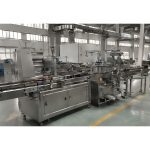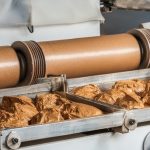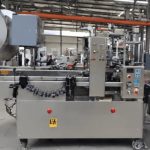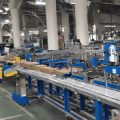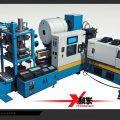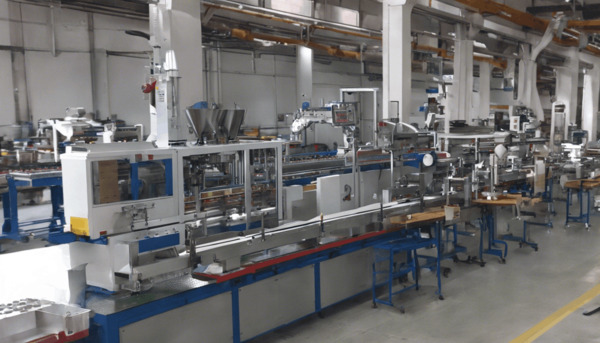
Understanding Automatic Packing Machines
An automatic packing machine is a type of industrial equipment designed to automate the packaging process of products. These machines are widely used in various industries such as food and beverage, pharmaceuticals, cosmetics, and consumer goods, among others. The primary purpose of an automatic packing machine is to enhance efficiency, reduce labor costs, and ensure consistency in packaging quality. In this article, we will delve into the workings, types, benefits, and considerations associated with automatic packing machines.
1. **Form-Fill-Seal Machines**
These machines are used to form packaging materials into bags or pouches, fill them with the product, and then seal them. They are commonly used in the food industry for packaging snacks, grains, and liquids.
2. **Cartoning Machines**
Cartoning machines are used to erect, fill, and close cartons or boxes. They are often used for packaging products such as pharmaceuticals, cosmetics, and consumer goods.
3. **Wrapping Machines**
These machines wrap products in materials such as plastic film or paper. They are used for both individual product wrapping and bundling multiple products together.
4. **Labeling Machines**
Labeling machines apply labels to products or packaging. They can handle a variety of label types and are used in industries where product identification and branding are crucial.
1. **Increased Efficiency**
By automating the packaging process, these machines significantly increase the speed and efficiency of production lines. This allows businesses to meet higher demand and improve their overall productivity.
2. **Cost Savings**
Although the initial investment in automatic packing machines can be substantial, they lead to long-term cost savings by reducing the need for manual labor and minimizing material waste.
3. **Consistency and Quality**
Automatic packing machines ensure consistent packaging quality, which is crucial for maintaining brand reputation and customer satisfaction. They also reduce the risk of human error, leading to fewer defects and rejections.
4. **Flexibility**
Modern automatic packing machines are highly versatile and can be easily adjusted to accommodate different product sizes, shapes, and packaging materials. This flexibility allows businesses to adapt to changing market demands and product lines.
1. **Product Specifications**
The type of product being packaged, its size, shape, and packaging material will influence the choice of machine. It is essential to select a machine that can handle the specific requirements of the product.
2. **Production Volume**
The expected production volume will determine the capacity and speed of the machine needed. Businesses should choose a machine that can meet their current and future production demands.
3. **Budget**
Budget constraints will play a significant role in the decision-making process. While it is important to invest in quality equipment, businesses should also consider the return on investment and potential cost savings.
4. **Maintenance and Support**
Regular maintenance is crucial for the optimal performance of automatic packing machines. Businesses should consider the availability of spare parts, technical support, and service agreements when choosing a machine.
Conclusion
Automatic packing machines are an integral part of modern manufacturing and packaging processes. They offer numerous benefits, including increased efficiency, cost savings, and improved packaging quality. By understanding the different types of machines available and considering key factors such as product specifications, production volume, and budget, businesses can make informed decisions when investing in automatic packing equipment. While the initial investment may be significant, the long-term advantages make automatic packing machines a worthwhile addition to any production line.
